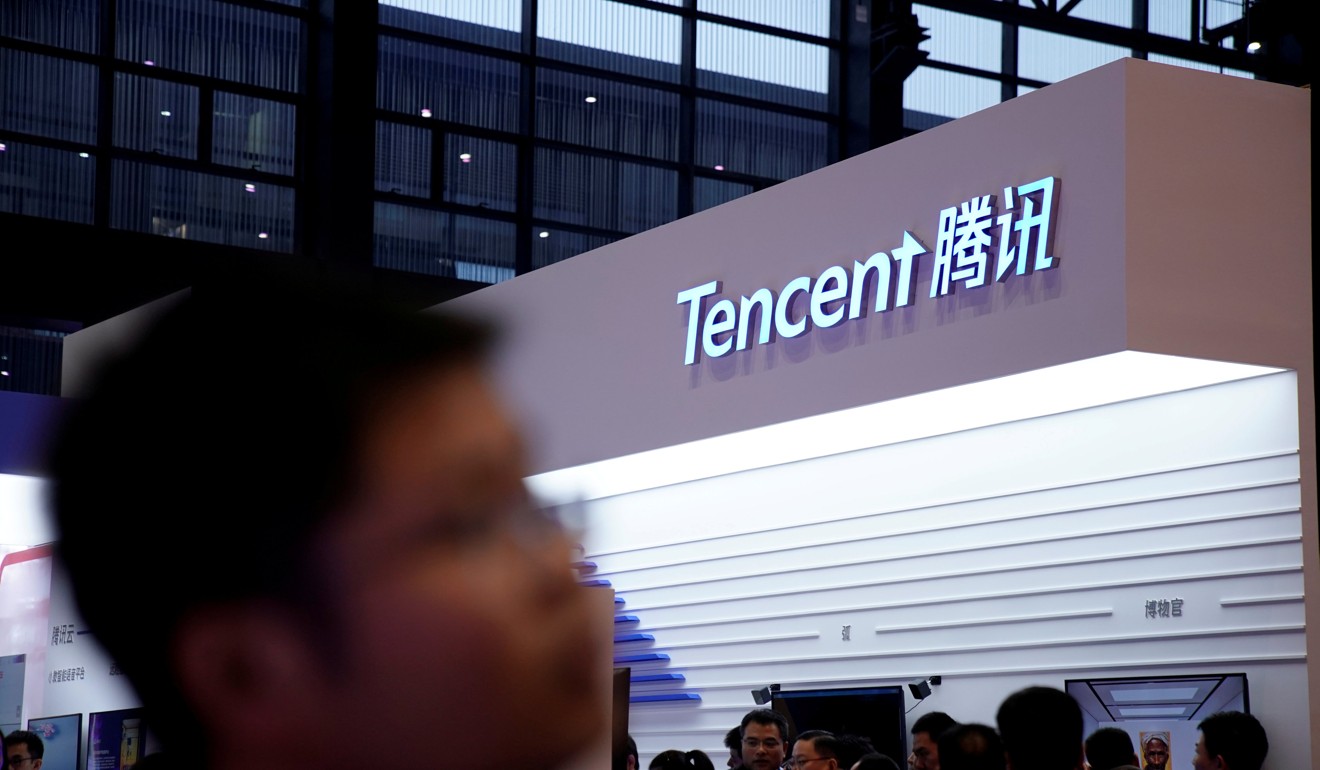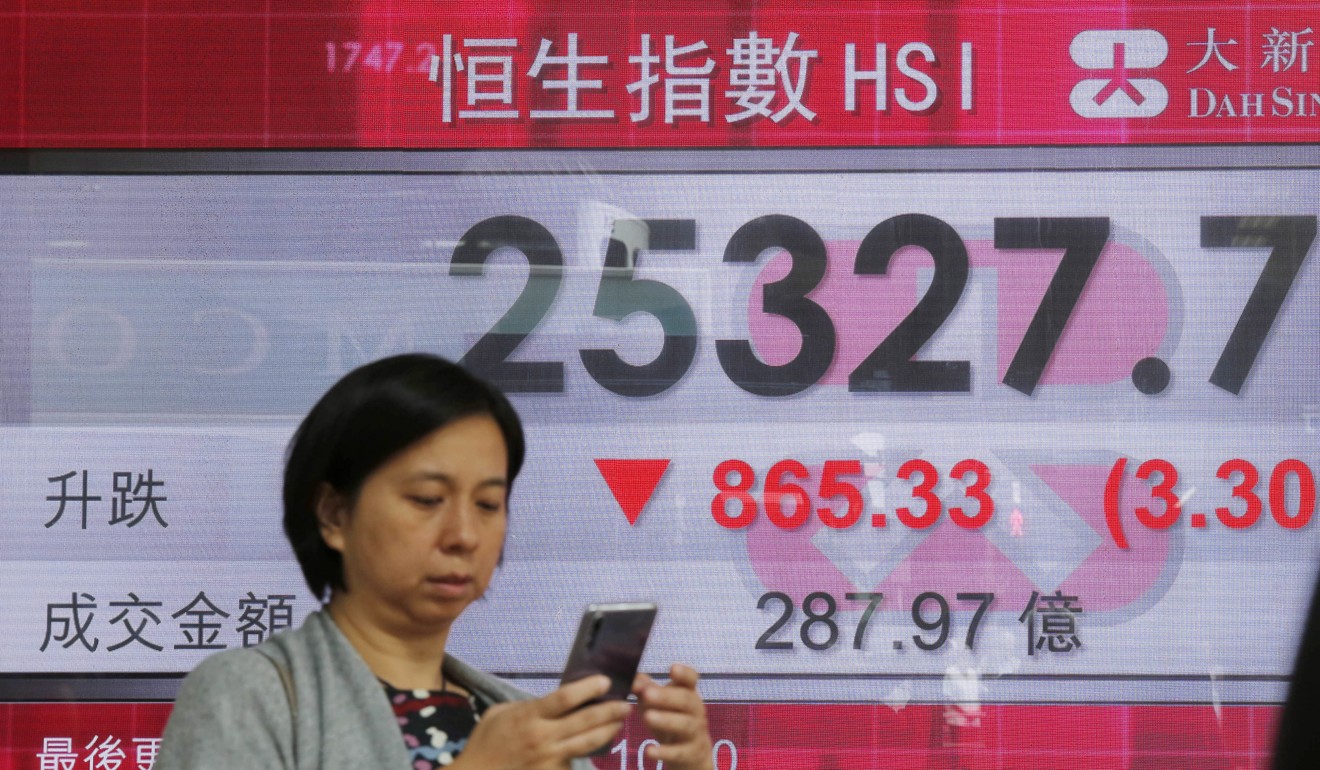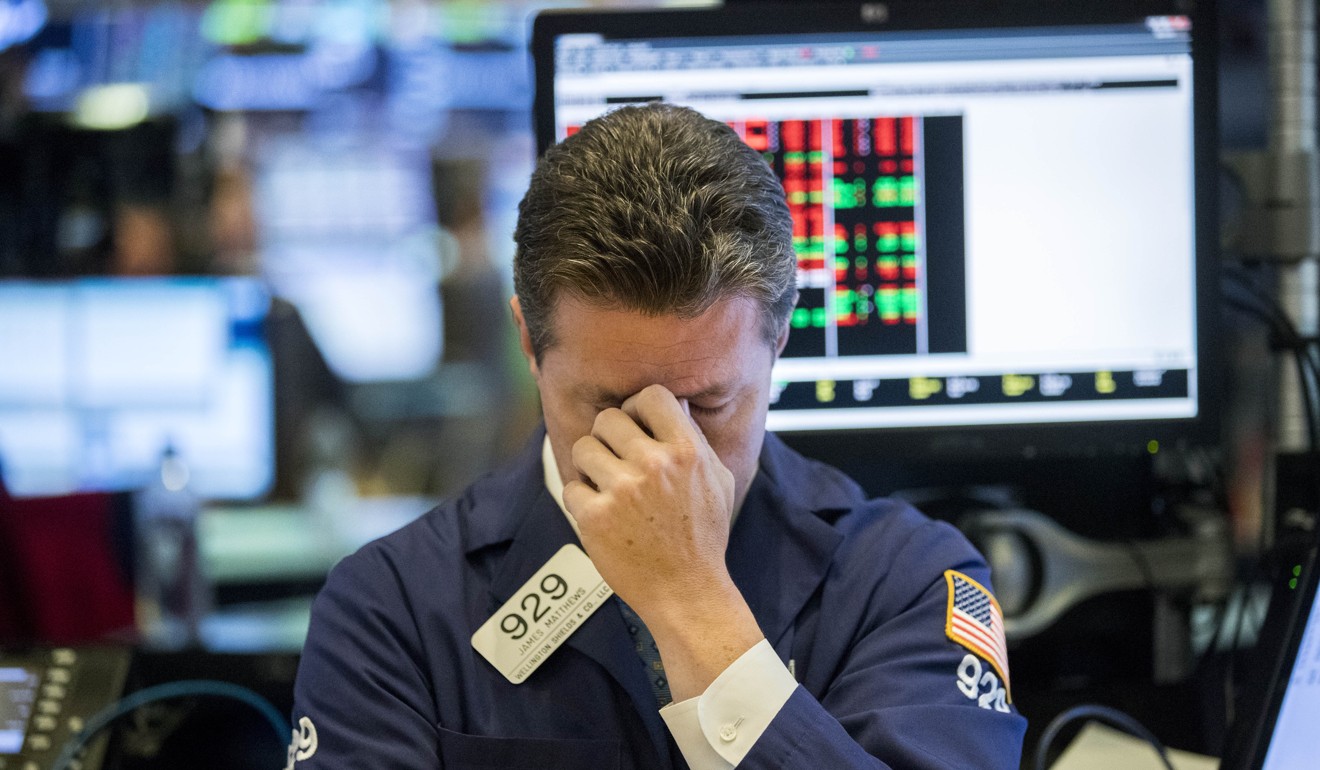
Hong Kong and China stocks rebound on expectations of November meeting between Trump and Xi
Hong Kong and the mainland markets have pared some of Thursday’s losses to close higher
Hong Kong and Chinese stocks bounced back on Friday to recover some of their steep losses from the previous day on reports the US and Chinese leaders may meet in November, fuelling hopes that trade tensions between the world’s two biggest economies will ease.
Chinese internet giant Tencent Holdings rebounded by 8 per cent to help Hong Kong shares pare Thursday’s losses.
The city’s benchmark Hang Seng Index rose 2.1 per cent, or 535.12 points, to close at 25,801.49, the biggest single day rise in a month. It tumbled 3.5 per cent on Thursday to end at the lowest level in 17 months. The index was also down three weeks in a row for a combined loss of nearly 8 per cent.
The Chinese onshore yuan also strengthened against a weakening dollar, rising to 6.9222 per dollar late in the afternoon.
“News that the leaders of the US and China could meet in November may cool tensions between the US and China, and this has led to a slight rebound of the Hong Kong and Chinese markets,” said Castor Pang Wai-sun, head of research at Core Pacific-Yamaichi Financial Group.
The meeting – expected to take place at the G20 summit in Buenos Aires at the end of November, according to a Wall Street Journal report – has been pushed by US Treasury Secretary Steven Mnuchin and National Economic Council Director Larry Kudlow, who are worried about the global stock market rout that has followed the trade fight.
News that the leaders of the US and China could meet in November may cool tensions between the US and China, and this has led to a slight rebound of the Hong Kong and Chinese markets
This comes as Wall Street suffered a second day of turmoil on Thursday amid fears about rising interest rates and slowing economic growth.
“The sharp sell-off we are seeing in the market has left a lot of folks wondering if this is the beginning of the end. [But] investors shouldn’t panic,” said Christopher Smart, head of macroeconomic and geopolitical research at Barings.
“There are signs of reflation in the United States with unemployment at record lows and wages rising, but inflationary expectations still seem muted and the Fed doesn’t seem like it’s behind the curve.
“So far, it has the feel of a temporary correction that will take some of the excess air out of tech stocks.”
HSI heavyweight Tencent snapped a 10-day losing streak to close at HK$288.40 on Friday. A total of HK$15.29 billion worth of shares changed hands, accounting for nearly 14 per cent of the main board’s HK$111.14 billion in turnover.

Other notable gainers on Friday included property developer China Resources Land, up 5.8 per cent to HK$25.60, rival Country Garden Holdings, which gained 6 per cent to HK$8.46, and smartphone component maker Sunny Optical Technology, which surged 10.7 per cent to HK$78.95.
The mainland Chinese market also rebounded. The benchmark Shanghai Composite Index rose 0.9 per cent to 2,606.91, having plunged more than 5 per cent on Thursday to a four-year low.
On the tech-heavy Shenzhen exchange, the Shenzhen Composite Index and the Shenzhen Component Index rose 0.2 per cent and 0.5 per cent respectively.

Elsewhere in Asia, Japan’s Nikkei 225 rose 0.5 per cent, rebounding from a 3.9 per cent decline on Thursday.
“Asian equities are now trading fairly close to stress levels, with China unleashing a stimulus to partly offset the trade impact,” said Hartmut Issel, head of Asia-Pacific equities and credit at UBS Global Wealth Management Chief Investment Office.
A negative trade shock could push China’s gross domestic product growth below 6 per cent next year, he said.
“[But] we believe China still has sufficient policy firepower to inhibit such a slowdown. China will continue to ease fiscal and monetary policy in coming quarters regardless, including cutting the reserve requirement ratio by 100-200 more basis points in the next 12 months.”
Still, in light of “pending decisions on yet more potential tariffs”, the bank maintained a neutral stance on Asia, excluding Japan, stocks.
In the US, both the Dow Jones Industrial Average and the S&P 500 on Thursday dropped 2.1 per cent. The Nasdaq fell 1.3 per cent. The Dow and S&P had lost more than 5 per cent over the past two days.

US President Donald Trump on Thursday blamed the Federal Reserve's interest rate policy again for the recent declines in the stock market.
“It’s a correction that I think is caused by the Federal Reserve with the interest rate,” he told reporters in the Oval Office, according to The Washington Post.
“We have interest rates going up at a clip that's much faster than certainly a lot of people, including myself, would have anticipated. I think the Fed is out of control.”


